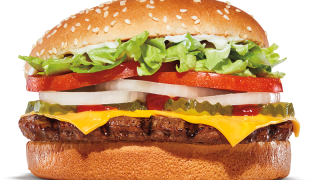Tipping in Hawaii has become yet another part of the tourism controversy. Yikes, as if we needed another issue. Where did the expression”bribes to ensure good service” come from? It’s historical from the time when tips began, as you’ll see below. Some say that tip, by the way, stands for “To Insure Promptitude.” Now that you know that bit of trivia, here are five frustrations you may have encountered around tipping. Before we go further, this short 30-second video will help to set the tone.
Following are five “tipping points” to coin a phrase by Malcolm Gladwell, which means the moment you reach the boiling point in critical mass. How many of these have you found yourself in, and what do you do?
Tipping Point 1: Fatigue caused by endless requests for tips.
As businesses move to digital payment services like Square, found almost everywhere in Hawaii (and elsewhere), there is the dread of receiving the ubiquitous tip screen when service has not been rendered. Just like we saw in the video above.
Tipping fatigue, in Hawaii at least, seems like it is getting out of hand more so than elsewhere. In case you missed it, Hawaii visitors are taking to social media to rail about these requests that come through for everything from buying basic coffee, take-out, online ordering, and drive-throughs. Where is it going to end? If you break out in a cold sweat when you see the image below, then read on for more.


Tips are set by the business, and we’ve seen them go as high as 30%. Ugh.
What happened is that when we went from Hawaii’s tip jars to online requests, there entered this element of shame, embarrassment, and pressure. It’s left us feeling afraid about the food in the event we don’t leave what is deemed to be an adequate tip when ordering. Let alone what will someone standing nearby think if we opt for 15% instead of the up to 30% proposed.
Tipping Point 2: Asking for tips before service is rendered.
One restaurant even explained what the tips are for: 15% is for providing good service, while 18% would be when the service is great, 20% was for Wow! service, and 30% was for the best service ever. The problem is when service is provided after the tip is paid, since tipping was done at the point of order rather than when the service is delivered.
Anytime one is paying for something before receiving it (which is most transactions other than a classic sit-down restaurant experience), they are put in the situation of being asked for a tip by the software before they know if they’re even going to be happy with the product or service they receive. Thus your tip ends up being given out of good faith or a sense of obligation.
Tipping Point 3: Helping underpaid hospitality workers.


There’s just no doubt about it. People in Hawaii hospitality, whether they are waiters, cooks, baristas, or other staff, simply don’t get paid enough money to afford to live here. You commented widely on that in our recent post about the cost of living in Hawaii and those who are leaving.
Hourly workers, who may not even receive benefits, can make as little as $15/hour, which doesn’t provide a living wage in Hawaii. Others have suggested that the minimum wage in Hawaii should be more like $30, and we’d say they’re right. And even then, that’s when the employee is full-time and has benefits, including vacation, health care, sick leave, etc. For those who don’t, how can they even afford the $500+/month needed for basic health insurance? And that’s before talking about the minimum $2,000/mo for a one-bedroom apartment in Hawaii or the sky-high cost of food and other necessities.
Hawaii hospitality workers have come to expect to make a significant portion of their income in tips. And from the comments of some of you who work in hospitality, that just isn’t happening as it once did.
- One commenter said, “Face it, hospitality workers need to make a minimum of $30 an hour just to barely make ends meet. Wages can be increased immediately if all these greedy employers would accept the reality and pay quality people what they are worth! Regarding visitors, the person said, “Considering you barely tip if at all, why do you expect to receive 5-star service…”
- Another comment stated, “My 600 sqft 2 bedroom on Maui is the worst you can get here, hands down. I pay $2,300/month plus $200 electric and I turn my breakers off unless I’m using it. We get paid wage plus tips, our employers count on us to get tipped. Wages don’t cover half of what we need to survive. Missing out on a tip from a guest we served could mean we don’t make rent… Your Hawaii budget needs to include 15% tip bare minimum whatever the charge, for everything. If you can’t do that, please don’t come. We all live off of our tips.
- And finally, in response, “Tips are for outstanding service, not to supplement employers’ wages. Tell your employer to pay you more if you don’t like your wage, but for goodness sake don’t tell customers, “Don’t come!”
These countries either pay workers enough and/or indicate that tips are not required:
Australia, New Zealand, Myanmar, Singapore, Taiwan, Cambodia, Indonesia, Thailand, Vietnam, and parts of Turkey. In the European Union, expect a service charge to be added to your bill. But here in the United States, it’s like the “jelly of the month” club scene in the movie Christmas Vacation. People count on tips as part of their basic income.
Tipping Point 4: Pride in tipping is gone.
It used to be that we were happy to leave great tips for exceptional service. Now it seems an expectation for everything, including mediocre performance. Let’s face it, service isn’t what it once was in most cases. So that juxtaposition is irritating to even the best tippers.
Tipping Point 5: Tipping where tipping is not expected.
Here are some personal experiences. Editor Jeff said he walked into a coffee shop (not Starbucks) on Kauai to buy a bag of whole-bean coffee, which he took off the shelf and handed to the cashier. The store uses Square for customer payments. He saw the tipping options of up to 25% on the screen. That is a turn-off, pure and simple. Who likes being asked for a tip under that circumstance? If it isn’t possible to turn it off for that type of transaction, everyone suffers. We’ll add that if Jeff had requested they grind the beans for him, he would have tipped for that service.
Editor Rob reports on a local sandwich stand where he went to the refrigerator area to select a pre-made sandwich. When he brought it to the cashier to pay, he was shown the dreaded tip menu.
But, at least for us, if the goal is to make you feel bad and perform mercy tipping, it may have just backfired.
Nonetheless, according to guilty-as-charged Square, tipping at full-service restaurants was up by more than 25% in the last quarter they studied. They said that at service counter restaurants, that growth was 17%.
How we got to this tipping point: a historical perspective.
In the 1600s, people started using tips to ensure faster service in English pubs, essentially “bribing the staff” to get special consideration. The practice was introduced to the U.S. after the Civil War by Americans wanting to mimic the European upper class. In the 1980s, there was actually significant public push-back against the practice, which was seen as perpetuating the class boundaries between rich and poor.
Obviously, the tippers won out, and the custom became commonplace, morphing from a way for the well-to-do to get expedited service to a routine part of paying the bill. Gratuity in most restaurants is no longer gratuitous or extra but instead expected, with many establishments even prescribing a minimum acceptable percentage. Already guilt rather than gratitude was becoming a primary motivator, with the very livelihood of their servers depending on this added sum.







The article failed to include people who live here who are not making more than the employees they are supposed to tip …buying a bag of coffee or sandwich from she shelf during their lunch break should not ask them to pay a tip! I would try to avoid such a business!
In hawaii just now and looked for articles as this is out of control.
Paying a lot for the hotel and yet at every step getting asked for a tip.
I have no issue leaving a tip for good service but it is expected even for handing over food to you from a fridge.
If the local opinion is to pay 15-20 percent or do not come then this is fine, I will not be back.
The businesses should be held responsible for the cost of living prices – put the tip onto the shelf price and give workers a decent wage.
The cost of living has gone up everywhere in the world and most industries did not get a pay rise to cover it.
But we seem to be now told by the service industry that we are not welcome unless we pay over the odds for everything.
They shouldn’t be surprised to go out of business …I think a good business that values customers will win in the end!
This isn’t just happening in Hawaii. This is an issue everywhere in the US because that’s the system. It’s been exacerbated by the economy right now, but it’s everywhere. If, as you suggest, businesses would simply pay their workers a living wage, and adjust their prices accordingly (not take advantage of it to rip us all off even more) then tips could go back to being a reward for excellent services.
I’m curious as to what is considered a “living wage”? And should that be the base pay for the least skilled, entry level job there is? And is this for just a single individual or someone who has a family? And a renter or homeowner? 0, 1 or 2 cars? Saving for a vacation and putting money away for retirement?
Lot’s of things to consider when someone is talking about a “living wage”
There is a living wage calculator available at living wage dot bit dot edu what will allow you to answer all of those questions for a particular place. It include info for individuals with 0-3 children, with 1 or 2 working adults. Specifically, for the state of Hawaii a family with 2 working adults and 2 children would need to make $29.57/hour each. This include expenses such as Food, Child Care, Medical, Housing, Transportation, Civic, and Other.
I think that the basic definition should be wage paid for 40 hours per week that would support the emloyee. The details are that a wage for a student working in summer and living at home is different from a person of the same age living on their own. I suspect that job expected to be temporary (summer job, working over holidays in sales) might be at a lower rate but all positions considered as “permanent” should pay enough so the employee can pay for food, housing, transpiration, and clothing.
It’s a nice idea but I don’t think that it will work, discrimination lawsuits will be flying.
But here’s the issue with the “living wage” discussion, especially as it applies to “unskilled” labor. And when I say “unskilled”, I’m not saying it isn’t hard work but that it doesn’t take a college degree or trade school training to do it. You can pretty much do it after some initial training.
Single guy fresh out of HS and he’s to get his first job in some service industry, like a hotel. What’s a living wage for this guy / job?
Now we have the exact same job but now it’s an adult with 2 kids and a mortgage and maybe a car payment.
A living wage for the each of these people is different but it’s the same job.
What do we base the pay for this job on? How hard it is? How much training it takes to do it? Who is doing it?
You’re assuming the same amount of experience for both. Someone that’s married with 2 kids is going to have been in the job longer that a kid just graduating from high school. So, just like now, the more experience you have in the same job the more you get paid.
Assumptions are never guarantees. Many HS Students that I know/see work after school and on weekends unless they are involved in Sports. An older, yet young, person with 2 children and a wife doesn’t necessarily have as much experience as this could be an extra income job, something far too many have zero interest in exploring.
Maybe I should rephrase my question. Should All jobs pay a living wage for single individuals, or married individuals or?
Obviously, a single individual doesn’t need the same living wage as a married with kids individual.
So how do we determine how much an unskilled labor job should pay?
Are you saying the pay should not be based on the job but on the person doing the job?
Nope, I’m saying that the pay should be based on the person and the job, and the experience. Just like it is today. Not many jobs have a single pay rate. It’s usually a pay range, and different levels. So there’s a pay difference between someone who’s doing a job at the entry level and someone with 15 years of experience and is a Sr. person. But in the end, yes, someone who’s married and has 2 kids gets a higher “base” pay than a single person with no experience.
Even for entry level unskilled job? Like burger flipping or car parking or whatever the “beginner” job might be.
And the married person should get more? What’s to prevent me, a single person, from saying I’m married, and I have two kids?
Patrick I like the way that you think but I suggest padding that a little more. You live in an overpriced small 4 room apartment with your wife, 2 toddlers in diapers, and your newborn daughter. Don’t forget to say that you have a cat, dog, turtle, and goldfish. Make it sound desperate and a bit dire. Never know how much it may or may not help with the money! Just a suggestion.
Lol. That’s kind of my point. Most entry level jobs are just that. Entry level / no experience required. A married person with kids Can’t except to make a “living wage” doing that.